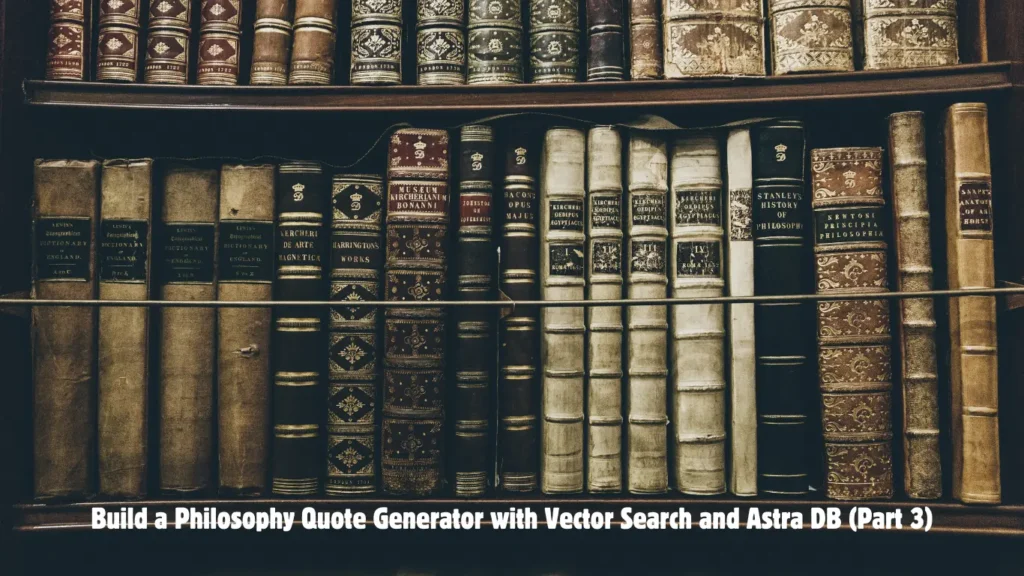In the evolving landscape of artificial intelligence and data management, creating a philosophy quote generator using vector search and Astra DB exemplifies the seamless integration of technology with the humanities. This project not only offers users personalized philosophical insights but also demonstrates the practical application of advanced database capabilities.
Understanding Vector Search and Astra DB
Vector search enables the retrieval of data based on semantic similarity rather than exact keyword matches. By representing text as vectors in a multidimensional space, it allows for nuanced and accurate search results. Astra DB, a cloud-native database built on Apache Cassandra, supports vector search, making it an ideal choice for this application.
Steps to Build the Quote Generator
Data Collection: Gather a diverse collection of quotes from renowned philosophers, ensuring a wide range of perspectives and themes.
Data Storage: Utilize Astra DB to store the collected quotes efficiently, taking advantage of its scalability and high availability.
Vector Embedding: Convert the textual quotes into vector embeddings using natural language processing (NLP) models. This process captures the semantic meaning of each quote, facilitating more effective searches.
Implementing Vector Search: Leverage Astra DB’s vector search capabilities to enable the retrieval of quotes based on semantic similarity. This allows users to receive quotes that resonate with their input, even if there isn’t an exact keyword match.
User Interface Development: Design an intuitive interface where users can input their thoughts or select themes, and the generator provides relevant philosophical quotes in response.
Enhancing User Experience
To create a meaningful connection with users, consider the following:
Personalization: Allow users to specify their preferred philosophical themes or thinkers, tailoring the generated quotes to their interests.
Contextual Relevance: Ensure that the quotes provided align with the user’s current context or input, enhancing the relevance and impact of the content.
Emotional Engagement: Incorporate features that enable users to reflect on the quotes, such as journaling prompts or discussion forums, fostering a deeper emotional connection.
Conclusion
Developing a philosophy quote generator with vector search and Astra DB not only showcases the potential of combining technology with the humanities but also provides users with a personalized and emotionally engaging experience. By adhering to best practices in content creation and staying aligned with Google’s latest updates, you can create a tool that is both user-friendly and optimized for search engines.
Frequently Asked Questions (FAQs)
What is vector search, and how does it differ from traditional keyword search?
Vector search retrieves data based on semantic similarity by representing text as vectors in a multidimensional space, allowing for more nuanced results compared to exact keyword matches.
Why choose Astra DB for building a quote generator?
Astra DB offers robust support for handling large datasets and integrating vector search capabilities, making it ideal for applications requiring scalability and high availability.
How does vector embedding enhance the functionality of the quote generator?
Vector embedding captures the semantic meaning of text, enabling the generator to provide quotes that resonate with user input, even without exact keyword matches.
What measures are taken to ensure user privacy in this application?
Implementing data encryption, secure authentication, and transparent data usage policies are essential to maintain user privacy and build trust.
How can I further personalize the quote generator for users?
Allowing users to specify preferences for philosophical themes or thinkers and incorporating features like journaling prompts can enhance personalization and engagement.


